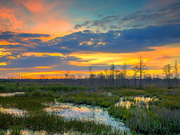top of page

CATCH UP WITH THE LATEST BLOG POSTS
Want to submit a Guest Blog?
Read our Scientific Articles
All Posts


Jon Hermes
Sep 26, 20243 min read


Eric Zhang
Sep 19, 20243 min read


Soham Arekar
May 28, 20242 min read


Autumn Marsh
May 28, 20242 min read


Abhay Gupta
Mar 4, 20244 min read


Erich Lawson
Mar 2, 20245 min read


Annie Button
Mar 1, 20244 min read


Seaside IT
Jul 13, 20234 min read


Seaside IT
Jan 27, 20233 min read


Seaside IT
Nov 15, 20223 min read


Seaside IT
Nov 15, 20224 min read


Seaside IT
Nov 15, 20228 min read


Seaside IT
Nov 1, 20222 min read


Seaside IT
Nov 1, 20223 min read


Seaside IT
Oct 7, 20227 min read


Seaside IT
Sep 27, 20221 min read


Seaside IT
Sep 27, 20223 min read


Seaside IT
May 12, 20224 min read


Project STOMP: The Students Fighting Plastic Pollution
Thank you to Wilbraham Middle School for promoting environmental education and for supporting Seaside! Each year, students at Wilbraham Middle School do a series of projects to fight against plastic pollution ! These projects include art, PSAs, and research projects meant to educate about the dangers of plastic pollution. In addition, students make and sell products using upcycled materials and donate the funds to fight plastic pollution. Watch the video above to see all of t

Seaside Sustainability
Feb 151 min read


Offshore Drilling: Over a Billion Acres of Our Coasts Are On the Line
Grace Clark Seaside Sustainability is proud to join the 144 organizations and institutions opposing the Trump administration’s plan to drastically increase the amount of land being permanently damaged by unnecessary offshore oil and gas drilling. For its high risk, the planned expansion offers zero reward to the millions of Americans who rely on coastal industry, or to the millions more who simply love our oceans. What’s Happening? 1.27 billion acres of ocean have the potent
Grace Clark
Feb 113 min read


Upcoming Discussion with Author Sharon Udasin
Grace Clark Join environmental reporter Sharon Udasin for a virtual discussion on her book Poisoning the Well: How Forever Chemicals Contaminated America on Wednesday, January 14th at 7:00 pm EST . In her fifteen years of experience, Udasin has worked and reported for many outlets, including for The Hill and as a Ted Scripps Fellow in Environmental Journalism at the University of Boulder Colorado. Along with co-author Rachel Frazen, Udasin uses Poisoning the Well to explor
Grace Clark
Jan 81 min read


Tell Congress You Won’t Accept Trump's Environmental Cuts
Grace Clark On November 13th, the US Federal Government reopened after a forty-three day shutdown. This record-breaking shutdown shows that Trump’s 2026 federal budget request is one of the most historically controversial, and for good reason. The budget plans to cut millions in spending aimed at studying, preserving, and restoring the unique and invaluable environment America is blessed with. Fortunately, by getting informed and speaking your mind, you can do your small part
Grace Clark
Dec 22, 20252 min read


December Donation Guide, pt. 2
Grace Clark The holidays have snuck up on us once again! In the rush of gift buying and guestroom prepping it’s easy to fall behind on our favorite holiday traditions, including giving back. Luckily, our December Donation Guides are the perfect place to support a cause you believe in- like a gift catalogue, but for environmental activism! Marine Science and Education Seaside is involved in a wide variety of marine science and education efforts, including: Coastal Cleanups-
Grace Clark
Dec 19, 20254 min read
Legislation & Advocacy
Environmental Justice


Project STOMP: The Students Fighting Plastic Pollution
Thank you to Wilbraham Middle School for promoting environmental education and for supporting Seaside! Each year, students at Wilbraham Middle School do a series of projects to fight against plastic pollution ! These projects include art, PSAs, and research projects meant to educate about the dangers of plastic pollution. In addition, students make and sell products using upcycled materials and donate the funds to fight plastic pollution. Watch the video above to see all of t

Seaside Sustainability
Feb 151 min read


Offshore Drilling: Over a Billion Acres of Our Coasts Are On the Line
Grace Clark Seaside Sustainability is proud to join the 144 organizations and institutions opposing the Trump administration’s plan to drastically increase the amount of land being permanently damaged by unnecessary offshore oil and gas drilling. For its high risk, the planned expansion offers zero reward to the millions of Americans who rely on coastal industry, or to the millions more who simply love our oceans. What’s Happening? 1.27 billion acres of ocean have the potent
Grace Clark
Feb 113 min read


Seaside Sustainability 2025 Impact Recap
Seaside would like to thank all of the donors, volunteers, and supporters who made our work possible in 2025! Watch the video above to see the impact your work and generosity has had, and click here if you would like to get involved in the new year!

Seaside Sustainability
Jan 211 min read


The Arctic Water Crisis: Losing 10,000 Gallons a Day and Why It Matters for Global Sustainability
Jane Marsh The Arctic is often the epicenter of climate change discussions, and rightfully so. Imagine a lake appearing overnight where a frozen structure had stood for millions of years. As permafrost thaws amid rising global temperatures, this phenomenon is quickly becoming the Arctic's new reality. The transformation is dramatic and startling, shedding light on a hidden water crisis that few could have predicted. Beyond melting glaciers, the region's freshwater system is o
Jane Marsh
Jan 167 min read


Upcoming Discussion with Author Sharon Udasin
Grace Clark Join environmental reporter Sharon Udasin for a virtual discussion on her book Poisoning the Well: How Forever Chemicals Contaminated America on Wednesday, January 14th at 7:00 pm EST . In her fifteen years of experience, Udasin has worked and reported for many outlets, including for The Hill and as a Ted Scripps Fellow in Environmental Journalism at the University of Boulder Colorado. Along with co-author Rachel Frazen, Udasin uses Poisoning the Well to explor
Grace Clark
Jan 81 min read
Climate


Going Solar: Upcoming Webinar
Grace Clark Solar panels sound like a great way to help the planet on paper, until you get overwhelmed with the logistics of installation. Luckily, Energize Wayland is hosting a free webinar aimed at guiding homeowners through the process of switching to solar energy. Solar Without Federal Incentives: Why It Still Works and What Options Exist is coming up on February 18, from 7-8 pm est, and registration is open now! Why Go Solar? Solar panels do what any other upgrade doe
Grace Clark
Feb 121 min read


The Arctic Water Crisis: Losing 10,000 Gallons a Day and Why It Matters for Global Sustainability
Jane Marsh The Arctic is often the epicenter of climate change discussions, and rightfully so. Imagine a lake appearing overnight where a frozen structure had stood for millions of years. As permafrost thaws amid rising global temperatures, this phenomenon is quickly becoming the Arctic's new reality. The transformation is dramatic and startling, shedding light on a hidden water crisis that few could have predicted. Beyond melting glaciers, the region's freshwater system is o
Jane Marsh
Jan 167 min read


How Wetlands Keep Our Climate in Check
Irleen Kaur When we think about powerful climate solutions, we often visualize clean technology or other engineered systems. Yet, we often overlook leveraging natural landscapes in helping regulate our planet’s climate. Wetlands, for example, play an important role in balancing the atmosphere's carbon levels and water purification. Understanding and protecting this ecosystem is a critical strategy in our response to climate change. What is a Wetland? Wetlands are areas where
Irleen Kaur
Jan 25 min read


December Donation Guide, pt. 2
Grace Clark The holidays have snuck up on us once again! In the rush of gift buying and guestroom prepping it’s easy to fall behind on our favorite holiday traditions, including giving back. Luckily, our December Donation Guides are the perfect place to support a cause you believe in- like a gift catalogue, but for environmental activism! Marine Science and Education Seaside is involved in a wide variety of marine science and education efforts, including: Coastal Cleanups-
Grace Clark
Dec 19, 20254 min read


December Donation Guide
Grace Clark Look, there’s no reason to pretend: you’re busy, and thinking about the environment is stressful. The climate emergency is the last thing you want to be thinking about while trying to enjoy the holiday season. But it doesn't have to be all scary! This season would be incomplete without celebrating the passionate people working to preserve our natural world, or without supporting this work in turn. Seaside Sustainability believes that this year, an investment in en
Grace Clark
Dec 13, 20254 min read
Pollution
Education


Offshore Drilling: Over a Billion Acres of Our Coasts Are On the Line
Grace Clark Seaside Sustainability is proud to join the 144 organizations and institutions opposing the Trump administration’s plan to drastically increase the amount of land being permanently damaged by unnecessary offshore oil and gas drilling. For its high risk, the planned expansion offers zero reward to the millions of Americans who rely on coastal industry, or to the millions more who simply love our oceans. What’s Happening? 1.27 billion acres of ocean have the potent
Grace Clark
Feb 113 min read


Forever Chemicals, Forever Problems: How PFAS Contaminated Our World
Irleen Kaur Becoming a highly industrialized society has had its pros and cons. We’ve engineered chemicals that protect plants, resist extreme heat, and repel water. These conveniences have revolutionized the products we make today, but they come with a dark side. These synthetic chemicals last forever in our environment, accumulating in waterways, soil, marine organisms, wildlife, and even our bloodstream. PFAS, or per- and polyfluoroalkyl substances, are a diverse group of
Irleen Kaur
Feb 76 min read


Upcoming Discussion with Author Sharon Udasin
Grace Clark Join environmental reporter Sharon Udasin for a virtual discussion on her book Poisoning the Well: How Forever Chemicals Contaminated America on Wednesday, January 14th at 7:00 pm EST . In her fifteen years of experience, Udasin has worked and reported for many outlets, including for The Hill and as a Ted Scripps Fellow in Environmental Journalism at the University of Boulder Colorado. Along with co-author Rachel Frazen, Udasin uses Poisoning the Well to explor
Grace Clark
Jan 81 min read


Join Us to Watch Plastic People
Grace Clark You may have heard of microplastics, you may even have an idea of what they are, but do you really have an understanding of what they’re doing to your body? Fortunately, Cape Ann Community Cinema is hosting a series of film screenings featuring Ben Addelman’s Plastic People documentary in 2026! Join in to watch the documentary and participate in a facilitated discussion on January 4th and 18th or stay tuned for the announcement of their April dates! The award-wi
Grace Clark
Dec 27, 20251 min read


Greening the I-95 Corridor: Sustainable Dry Van Shipping to Protect New England Coasts
Alex Buzan Introduction: Why the I-95 Freight Route Must Go Green The I-95 corridor plays a vital role in the US transportation system. Yet, such active traffic has its downsides. Ecology experts claim that I-95’s traffic is responsible for around 29% of greenhouse gas emissions , which is a shockingly high number. Meanwhile, for New England, the ecological situation is becoming disastrous. While its major ports depend on freight transportation, the local ecosystem is in dang
Alex Buzan
Dec 26, 20253 min read
Sustainability


Project STOMP: The Students Fighting Plastic Pollution
Thank you to Wilbraham Middle School for promoting environmental education and for supporting Seaside! Each year, students at Wilbraham Middle School do a series of projects to fight against plastic pollution ! These projects include art, PSAs, and research projects meant to educate about the dangers of plastic pollution. In addition, students make and sell products using upcycled materials and donate the funds to fight plastic pollution. Watch the video above to see all of t

Seaside Sustainability
Feb 151 min read


How University Students Can Live a More Eco-Friendly and Sustainable Life
Erica Gibson Nobody wakes up one morning and decides to become the sustainability spokesperson of their entire dorm floor. That is not how it works. For most students, the shift starts small. Maybe a reusable water bottle, maybe guilt over tossing another plastic fork in the trash. The truth is, sustainable living for college students rarely begins with a manifesto. It begins with noticing. And that is what makes it interesting. University life is chaotic by design. Between l
Erica Gibson
Feb 145 min read


Going Solar: Upcoming Webinar
Grace Clark Solar panels sound like a great way to help the planet on paper, until you get overwhelmed with the logistics of installation. Luckily, Energize Wayland is hosting a free webinar aimed at guiding homeowners through the process of switching to solar energy. Solar Without Federal Incentives: Why It Still Works and What Options Exist is coming up on February 18, from 7-8 pm est, and registration is open now! Why Go Solar? Solar panels do what any other upgrade doe
Grace Clark
Feb 121 min read


Seaside Sustainability 2025 Impact Recap
Seaside would like to thank all of the donors, volunteers, and supporters who made our work possible in 2025! Watch the video above to see the impact your work and generosity has had, and click here if you would like to get involved in the new year!

Seaside Sustainability
Jan 211 min read


Beneath the Surface Episode Out Now!
Grace Clark We're excited to announce that our segment from the Beneath the Surface series is out now! Thank you so much to 1623 Studios for creating this episode featuring our outreach. Click here after watching to like and share!

Seaside Sustainability
Jan 71 min read
Guest Blog


Sustainable Roofing for Coastal Homes: Why Steel Leads the Way
Ron Johnson Life on the beach is unquestionably beautiful: sea breezes, panoramic vistas, and a way of life that is in harmony with nature. Nevertheless, there are also special environmental issues related to living on the coastline. Air salinity, intense sun, high winds, and storms that are becoming more severe can have a strong effect on houses. When it comes to property owners who believe in the long-term stability and overall environmental integrity, roofing material is o
Ron Johnson
5 days ago6 min read


Why Eco-Friendly Nail Routines Are Becoming Mainstream
Jean Sistaco Eco-friendly beauty is no longer a trend that lives on the margins, focusing on looks only. It has actually become part of the main conversation where ingredients are becoming more and more important than ever. This eco-conversation is beginning to include how people think about their everyday routines, including nail care. What once felt like an occasional “green” swap reserved for nail enthusiasts is now a broader shift in mindset that includes: Fewer products
Jean Sistaco
Feb 165 min read


How University Students Can Live a More Eco-Friendly and Sustainable Life
Erica Gibson Nobody wakes up one morning and decides to become the sustainability spokesperson of their entire dorm floor. That is not how it works. For most students, the shift starts small. Maybe a reusable water bottle, maybe guilt over tossing another plastic fork in the trash. The truth is, sustainable living for college students rarely begins with a manifesto. It begins with noticing. And that is what makes it interesting. University life is chaotic by design. Between l
Erica Gibson
Feb 145 min read


Going Solar: Upcoming Webinar
Grace Clark Solar panels sound like a great way to help the planet on paper, until you get overwhelmed with the logistics of installation. Luckily, Energize Wayland is hosting a free webinar aimed at guiding homeowners through the process of switching to solar energy. Solar Without Federal Incentives: Why It Still Works and What Options Exist is coming up on February 18, from 7-8 pm est, and registration is open now! Why Go Solar? Solar panels do what any other upgrade doe
Grace Clark
Feb 121 min read


Why Eco-Friendly Sidewalk Repair Is the Future of Urban Infrastructure
Sujain Thomas Urban infrastructure is evolving rapidly as cities face increasing pressure to become more sustainable, resilient, and people-focused. Among the most overlooked yet essential elements of city infrastructure are sidewalks. They support daily movement, ensure accessibility, and shape how communities interact with their surroundings. Sidewalk repair is not just about fixing concrete—it’s about building long-term, eco-friendly solutions that support safer, greener c
Sujain Thomas
Jan 303 min read
Have an idea for a Guest Blog?


How Media Monitoring Reveals Global Trends in Ocean Conservation
Sujain Thomas Ocean conservation has become one of the defining environmental priorities of the 21st century. From coral bleaching and plastic pollution to overfishing and rising sea temperatures, the health of the world’s oceans is constantly discussed across news outlets, research publications, government reports, and social platforms. In this fast-moving information environment, media monitoring plays a crucial role in identifying emerging narratives, tracking policy shift
Sujain Thomas
4 days ago5 min read


Sustainable Roofing for Coastal Homes: Why Steel Leads the Way
Ron Johnson Life on the beach is unquestionably beautiful: sea breezes, panoramic vistas, and a way of life that is in harmony with nature. Nevertheless, there are also special environmental issues related to living on the coastline. Air salinity, intense sun, high winds, and storms that are becoming more severe can have a strong effect on houses. When it comes to property owners who believe in the long-term stability and overall environmental integrity, roofing material is o
Ron Johnson
5 days ago6 min read


Educational Videos for Sustainability: Techniques for Creating Engaging Environmental Content
Nevil Johnson Here's the painful fact about today's environmental content: we're drowning with it, yet most people just scroll right over. There is more data than ever before, more studies, and more urgent warnings, yet persuading people to stop and pay attention seems to be more difficult than it should. Educational sustainability videos could change that, except, well, most of them don't. The thing is, environmental video production has this weird problem. It's either so do
Nevil Johnson
6 days ago5 min read


Why Eco-Friendly Nail Routines Are Becoming Mainstream
Jean Sistaco Eco-friendly beauty is no longer a trend that lives on the margins, focusing on looks only. It has actually become part of the main conversation where ingredients are becoming more and more important than ever. This eco-conversation is beginning to include how people think about their everyday routines, including nail care. What once felt like an occasional “green” swap reserved for nail enthusiasts is now a broader shift in mindset that includes: Fewer products
Jean Sistaco
Feb 165 min read


How University Students Can Live a More Eco-Friendly and Sustainable Life
Erica Gibson Nobody wakes up one morning and decides to become the sustainability spokesperson of their entire dorm floor. That is not how it works. For most students, the shift starts small. Maybe a reusable water bottle, maybe guilt over tossing another plastic fork in the trash. The truth is, sustainable living for college students rarely begins with a manifesto. It begins with noticing. And that is what makes it interesting. University life is chaotic by design. Between l
Erica Gibson
Feb 145 min read
bottom of page




